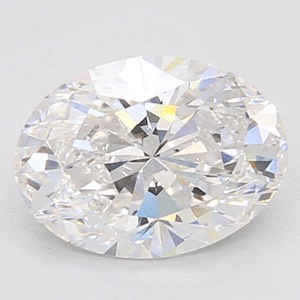
On Thursday, the Carnegie Institution of Washington and M7D Corp.—the legal name of WD Lab Grown Diamonds—sued six created-diamond companies for allegedly violating Carnegie’s patents for growing and enhancing diamonds with the chemical vapor deposition method.
The suits, filed yesterday in Southern District of New York federal court, target three pairs of related lab-grown diamond companies: Pure Grown Diamonds, based in New York City, and IIa Technologies, based in Singapore; Fenix Diamonds, based in New York City, and Mahendra Brothers, based in India; and ALTR Inc. and R.A. Riam Group, both based in New York City.
The three suits, which use similar language and make similar claims, allege that that the companies are infringing on two Carnegie Institution patents, to which M7D holds the license.
The first, patent number 6,858,078, issued in February 2005, lays out a method for producing CVD diamonds using a microwave-plasma process. The second, patent, RE41189, reissued in April 2010, covers a method for improving a diamond’s visual qualities using high-pressure, high-temperature treatment, a process sometimes called annealing. Diamonds grown with chemical vapor deposition that haven’t been treated are known as “as-grown.”
According to the three complaints, the patents at issue are “well-known in the lab-grown diamond industry and in particular are well-known by lab-grown diamond manufacturers, importers, and sellers.”
The plaintiffs seek an injunction against the production of any allegedly infringing products and that M7D and Carnegie receive a “reasonable royalty” from any past sales of infringing products.
“We are very serious about protecting our rights and our investment,” WD’s chief executive officer Sue Rechner, who was appointed in September, tells JCK. “The decision to start litigation is not one any company takes lightly. It’s typically a last resort. We don’t want to go into litigation, but if we must, we must. We are adamant that our intellectual property be respected.”
This action isn’t meant to disrupt the lab-grown market, she says.
“We want to make sure that quality and integrity remain pillars of this industry. To that end, WD is open to entering business arrangements that will maintain industry integrity. But if we can’t make those arrangements, we will see this through.”
This move had been telegraphed last May, when WD executives told JCK that they planned to take legal action against perceived patent infringement. Back then, they indicated that they planned to target U.S. retailers. This action, however, involves wholesalers and manufacturers that grow diamonds overseas.
Rechner says she is “not prepared to talk about our legal strategy. We are not at liberty to discuss these targets or any additional targets. This is the start of significant communication to the market that we will do what we have to do and that we take our IP seriously.”
None of the companies responded to a request for comment by press time. ALTR’s reps said they hadn’t heard about the suit until JCK contacted them.
This is not the only intellectual property lawsuit involving lab-grown diamonds. In 2016, De Beers–owned Element Six sued IIa Technologies for patent infringement. That suit led Element Six to try to enforce a discovery request against Pure Grown Diamonds in the United States. IIa has denied any infringement.
Top: A WD lab-grown diamond (image courtesy of WD Lab Grown Diamonds)
- Subscribe to the JCK News Daily
- Subscribe to the JCK Special Report
- Follow JCK on Instagram: @jckmagazine
- Follow JCK on X: @jckmagazine
- Follow JCK on Facebook: @jckmagazine